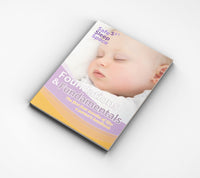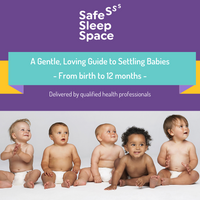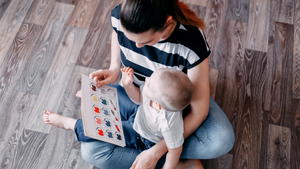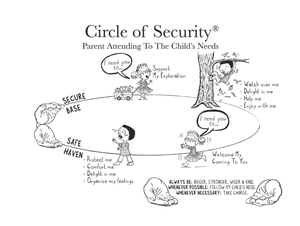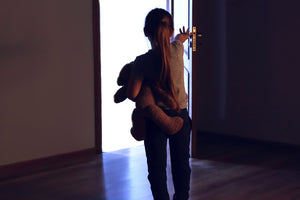Why is Infant Mental Health so Important When it Comes to Sleep?

One of the most important things we can do for our children is to support their sense of security. From a secure base, children are able to do what they need to do – play, thrive, learn and grow. When they don’t feel safe, much of their behaviour is driven from fear and a sense of anxiety.
Kids, who feel apprehensive about what could happen, don’t reach their full potential when they’re little and eventually as adults. Their energies go into being vigilant and watchful in case they need to defend themselves. And this sense of alertness continues even when a child is tired and ready to sleep. When a child feels fearful, stress hormones are activated in their brain which keeps them alert and hyper aroused, preventing them from ‘switching off’ and sleeping well.
When a child learns, through repetition that their parents will help to support them emotionally, they have better quality sleep and are happier little people.
Children need to feel safe and secure in order to relax and go to sleep.
What we know to be true
- A child’s emotions drive their behaviour. Because young children don’t have a big vocabulary to describe how they’re feeling, parents need to interpret what this by how they are acting and their facial expressions.
- Crying, tantruming, becoming very quiet and withdrawn are classic childhood behaviours when children are upset. Conversely, smiling, laughing, becoming excited and playing happily are all signs of contentment.
- Babies and children sleep more lightly than adults do. They also have much shorter sleep cycles than adults. This combination means they wake more frequently and need support to settle and resettle.
- Most parents experience sleep deprivation in the early months of their baby’s life. It will help to be realistic about your child’s sleeping patterns and know that eventually, you’ll have the chance to catch up.
- It’s normal for breastfed babies to wake at least once overnight and need feeding until they are seven months of age or older. Formula fed babies tend to sleep for longer periods overnight but some still need a bottle during the night beyond seven months old.
It’s time to calm down now
- Bedtime routines are very important. They help to build structure into the pre-bed ritual and assist with bringing the child down from an alert, active state to a calmer place. Two important hormones are activated during wind-down times, oxytocin and melatonin.
- Stay calm even if your child escalates. Often, children have a surge of energy just before they go off to sleep. This can be confusing and cause parents to doubt if their child really is tired or, it’s too early to settle them for a sleep.
- Look for your child’s ‘sleep window’. A sleep window is a brief period of time where the child shows tired signs and the chances of them going off to sleep are at their peak. Missing the sleep window or, keeping the child up when they are showing clear tired signs can lead to overtiredness. When a child is overtired, they resist going to sleep and tend to cry more.
- Place your child into the same cot or bed for every sleep period. Try not to vary their sleeping environment so they learn that this place is for sleep. Avoid flexibility about where your child sleeps. One place for all their sleep periods will help to support their sense of security.
- Always be bigger, wiser, stronger and kinder. Check Circle of Security ™. Speak with your child health nurse about COS courses which will give you great insight into your child’s needs and how you can best meet them.
- Stay close to your child and give them lots of affection during their wind-down time. Cuddles, kisses, skin contact and snuggling are all excellent ways of communicating “I love you”. Give your child clear verbal messages that it’s sleep time as you place them into their cot or bed. Stay with them until they’re calm.
- Check Safe Sleep Space for a range of age-appropriate settling options for your little one. Everything we do at Safe Sleep Space is underpinned by an infant mental health approach and guided by Circle of Security principals™.
- Read stories to your child as part of their settling ritual. The evidence is very clear that children benefit significantly from being read to by their parents. Be mindful that children develop favourites when it comes to stories and books, this is all part of the ritual and predictability.
- Sing songsand nursery rhymes during settling periods.
- Consider making your children’s room dark, quiet and peaceful. Some behaviourists believe that as humans, we sleep better in a ‘cave like’ atmosphere which mimics our early ancestors sleeping environment.
- Be prepared for your child to develop affection for a soft toy or teddy. According to red nose recommendations, keep soft toys out of the child’s cot until they’re seven months of age due to the risk of suffocation.
- Make sure your child isn’t hungry and not due for a feed. Hungry babies don’t settle and sleep well and wake earlier than they may otherwise do.
- If your child feels fearful of the dark, consider leaving a hallway light on or using a night light. Avoid games which create fear or, engaging in conversations about why monsters, etc aren’t real.
Five important tips about infant mental health
- Parents who are experiencing depression or anxiety themselves don’t parent to their full potential. It’s important to get help if you feel you are struggling, your GP or child health nurse is a good starting point.
- Children don’t need to feel happy every minute of the day. The human brain is designed to feel a full range of emotions including fear, sadness, happiness, and joy. It’s unrealistic to insulate your child to the point where they only have positive experiences.
- A child’s temperament and personality will influence how they behave. Some kids are just shy, take longer to warm up and do better when fewer people are around. Some are naturally gregarious and aren’t fazed by new people and situations. Work with the child you have and don’t compare them with others.
- Aim to be an empathetic parent – this will help your child learn that their feelings matter and you love them however they’re behaving.
Help with looking after your baby
The NourishBaby - Guide to Babies - is an online program that you can view in your own time. The Guide to Babies helps you to understand and care for your baby and covers key milestones, sleep and settling advice and baby development. There is a section on real parents sharing their experience of adjusting to parenthood.
Many parents have reduced sleep when a new baby arrives. The Safe Sleep Space website has a variety of resources and supports to provide tips and advice on how to assist your baby with sleep. You can also book a phone consultation to speak with a Sleep Consultant.
Other blog posts you will find helpful:
When is it time to get help for my child's sleeping?
Amber beads. Why they're really not a good idea.
Why is my baby noisy when they sleep?
More help?
Safe Sleep Space provides gentle and response-based sleep consultations. Our qualified consultants will talk to you about your unique situation and offer recommendations to help you address your sleep and settling concerns. Everything we do at Safe Sleep Space is underpinned by an infant mental health approach and guided by Circle of Security principals™. You can book a telephone consultation online or call us on 1300 775 337.
Written for Safe Sleep Space by Jane Barry, midwife and child health nurse.
About Safe Sleep Space
Safe Sleep Space is Australia's leading infant and toddler sleep consultancy. Known for our gentle and response-based approach, our team of child health nurses, midwives, and early childhood educators have been supporting children and families since 2008. As a result, parents and professionals alike turn to Safe Sleep Space for knowledge relating to infant and toddler sleep.
